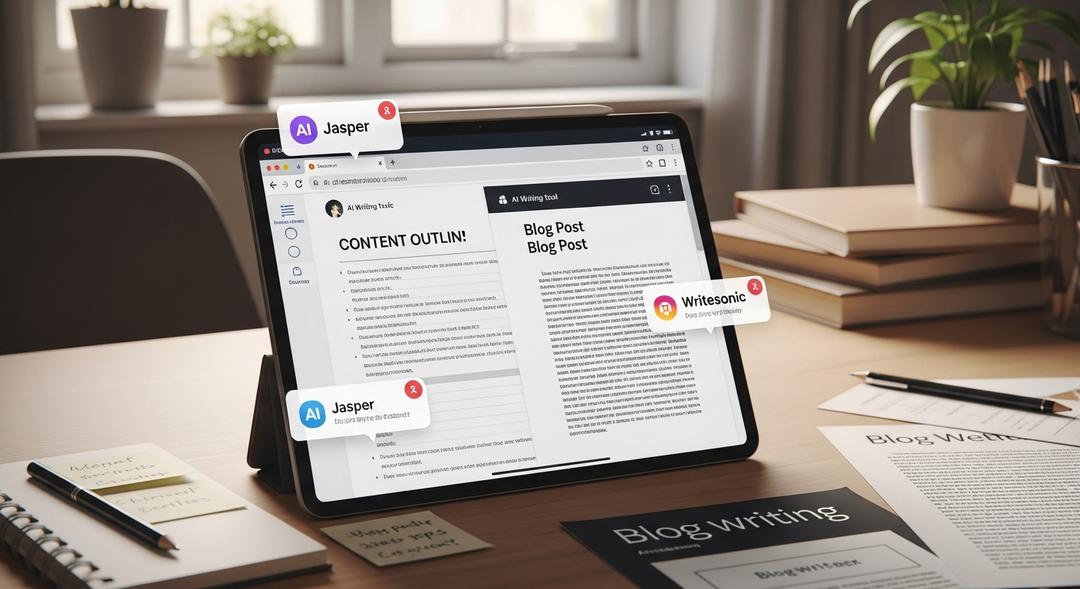Choosing the best tools for academic research is essential for streamlining your workflow and maximizing your productivity. The right platforms allow you to tackle every part of the academic process, whether you are conducting a literature review or generating original content, by offering advanced features that improve accuracy and efficiency.
In a rapidly changing academic environment, integrating technology gives researchers a strong advantage. Whether you are developing a thesis or writing a scholarly paper, accessing the most robust research solutions helps you keep track of references, synthesize findings, and produce polished research outcomes.
What are the benefits for using best AI tools for academic research
Incorporating high-quality solutions for academic research provides crucial support for students, scholars, and professionals alike.
The main benefits include:
- Automating tedious and repetitive tasks such as data collection and citation generation
- Increasing the standard of academic writing and analysis with sophisticated algorithms
- Making collaboration easier and giving users seamless access to extensive knowledge bases
1. Consensus
Features
- Summarizes key findings from peer-reviewed research papers
- Provides fast question-and-answer results on complex academic queries
- Displays evidence grading so users can evaluate study quality
- User-friendly interface suitable for novice and experienced academics
Pros
- Quick access to dependable academic content
- Condenses complicated research into simple summaries
- Supports users in building opinions based on solid evidence
- Covers a wide range of academic fields
Cons
- Might not always include the newest publications
- Summary approach may skip nuanced findings
- Limited sophisticated settings for high-level researchers
Pricing: Free basic access, with premium upgrades for extra features.
2. Research Rabbit
Features
- Visualizes academic landscapes using interactive citation graphs
- Reveals meaningful connections between studies and researchers
- Lets users track ongoing publications on custom topics
- Offers collaborative project tools for teams
Pros
- Intuitive design helps users grasp vast literature networks
- Delivers tailored research suggestions
- Enables group sharing and collective work
- Maintains automated research tracking
Cons
- May not recall older or rare studies effectively
- Takes time to get comfortable with graph navigation
- Depends on the accuracy of underlying data sources
Pricing: Free for individual researchers and groups.
3. Semantic Scholar
Features
- Houses millions of scholarly articles for research
- Enhanced search options for high-quality, relevant content
- Automatic citation tools and reference suggestions
- Includes open-access resources
Pros
- Reliable coverage of scientific publications
- Easy to navigate and completely free
- Citation context allows detailed paper assessment
- Precision tools for sorting and filtering results
Cons
- Lacks full coverage in niche disciplines
- Main search may occasionally overlook rare papers
- Integration with reference managers is limited
Pricing: Always free for users.
4. NotebookLM
Features
- Organizes notes and academic materials using advanced technology
- Drafts outlines, summaries, and first drafts from uploaded documents
- Delivers unique insights from user-specific sources
- Can process PDFs and web content
Pros
- Makes the note-taking and synthesis process more efficient
- Handles information from a wide range of complex materials
- Highlights main themes within large files
- Syncs easily with Google Workspace
Cons
- Features may evolve as it’s still experimental
- Some restrictions with specialized formatting
Pricing: Free while in preview mode.
5. Julius AI
Features
- Intuitive interface for data analysis and statistical modeling
- Offers tools for interactive data visualization
- Responds to in-depth data questions in natural language
- Allows easy import of datasets from several formats
Pros
- Makes analytics simple, even for those without a technical background
- Accelerates decisions and insights generation
- Helpful for teaching, demonstrations, and presentations
Cons
- Statistical experts may need greater customization options
- Support for highly specialized data can be limited
- Requires internet for full cloud features
Pricing: Free with limited functions, paid plans available.
6. Scite
Features
- Offers detailed citation analysis with context explanations
- Checks if an article supports or contradicts particular claims
- Provides dashboards for impact monitoring and discussion tracking
- Has a browser add-on for quick citation checking
Pros
- Clarifies which literature supports or questions a finding
- Shows trends in citations and academic debate
- Can be integrated smoothly into research workflow
Cons
- Some limitations in coverage for non-English language journals
- Full features require premium subscription
- Interface might seem complicated for beginners
Pricing: Free basic version with optional premium upgrade.
7. Scholarcy
Features
- Creates detailed summaries of academic papers automatically
- Highlights essential citations and references
- Develops flashcards and notes for quick review
- Exports content to several file formats
Pros
- Drastically cuts down reading and notetaking time
- Breaks down complex documents for clearer understanding
- Perfect for exam study and lecture prep
Cons
- Performance may be unpredictable with multi-section manuscripts
- Full access to features requires a paid plan
Pricing: Offers a free trial, with paid subscriptions for full use.
8. ChatGPT
Features
- Acts as a writing assistant and brainstorming partner
- Provides clear explanations and sources of information in conversational language
- Custom guidance for technical or academic subjects
- Multi-round dialogue for thorough problem solving
Pros
- Helpful for idea generation and drafting
- Delivers quick answers to a range of questions
- Makes complex topics easier to grasp
Cons
- May lack access to recently published academic material
- Output quality depends on the detail of your question
- Cannot provide direct citations from the newest journals
Pricing: Core features are free; subscription unlocks advanced capabilities.
9. Wordvice AI
Features
- Powerful proofreading and grammar checking for academic texts
- Detects and corrects plagiarism
- Gives language suggestions tailored to each academic field
- Improves clarity and paraphrasing
Pros
- Improves academic writing quality
- Flexible for editing theses, articles, or essays
- Provides quick editing and feedback turnaround
Cons
- Works best when edits are reviewed by hand
- Free access is limited
Pricing: Free tier for basic use, premium plans for more extensive checks.
10. Typeset
Features
- Formats manuscripts for countless journals automatically
- Integrates citation and bibliography tools
- Exports submissions directly to journals and preprint servers
- Makes group editing easy
Pros
- Saves hours spent on document formatting
- Guarantees formatting that meets journal standards
- Promotes smooth teamwork on papers
Cons
- Some functions only available with a subscription
- More complex documents may need manual adjustment
Pricing: Offers a free option, with extra features for subscribers.
Conclusion
Selecting the right research tools can fully transform how you approach literature reviews, data analysis, writing, and even academic publishing.
Each of these recommended platforms focuses on supporting a distinct part of the research process, helping you work more efficiently and accurately while achieving the best outcomes.
Exploring and combining these resources makes academic research simpler and more effective for everyone involved. If you are looking for a wide selection of top AI research tools, there are platforms that can assist in every step of discovering, analyzing, and publishing academic work.
If you want solutions that specialize in supporting instructors and learners, consider leveraging AI education assistant tools to elevate your teaching and studying experience.
With these tools at your fingertips, academic discovery and innovation have never been more accessible.








